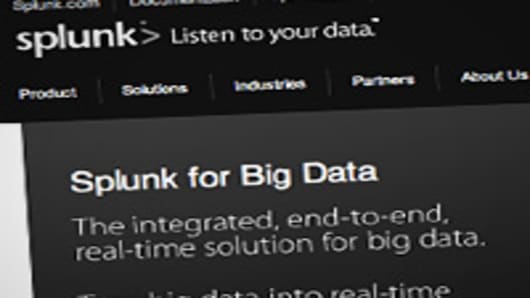Tech stocks on the cutting edge of enterprise solutions — cloud computing, mobile and big- data computing — have outperformed this year.
This trend has held true for one of the 10 best-performing initial public offerings in 2012, Splunk , which has doubled since going public. Contrast that with Facebook’s nearly 50 percent decline, since its debut.
Splunk is a first-mover into the big-data space, CEO Godfrey Sullivan said in a CNBC interview on Friday. “We are really focused on machine data, which we think is the biggest and fastest-growing piece of the big data equation,” he said.
Big-data is used to describe the large amount of digital data that's too costly to be processed and analyzed by traditional databases. The proliferation of tablets and smartphones has only accelerated the big-data trend. What Splunk does is “ingest and analyze the data and make it easy for customers to get value out of it,” CEO Sullivan said.
Even amid challenges in Europe and uncertainty in Corporate America, Splunk reported a 71 percent increase in total revenue to $44.5 million in the fiscal second quarter, and a 61 percent increase in license revenue to $30.2 million. The company lost a penny per share on a non-GAAP basis. The company topped revenue guidance and raised expectations for the year.
“When you have new software and innovation and the like going on, you get a shift of spending to your plate,” Sullivan said of the results. (Read More: What's Behind the Tech Rally? Not Just Apple.)
The company continues to innovate and is hoping its new software-as-a-service offering, Splunk Storm, targeted at developers takes off.
“Almost all developers now start their projects in the cloud (learn more),” Sullivan said, “and we want to be there with them so when they’re building their projects they actually have Splunk built in so when they deploy they get the benefits of knowing that we can analyze all the data that’s being generated by those applications.”
(Read More: 10 Ideas That Made $100 Million.)
In addition to big corporations, small businesses are using Splunk to analyze their data. “A lot of small businesses start with us with our free products and ultimately buy something,” Sullivan said.



